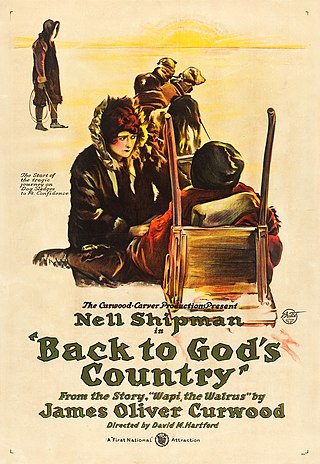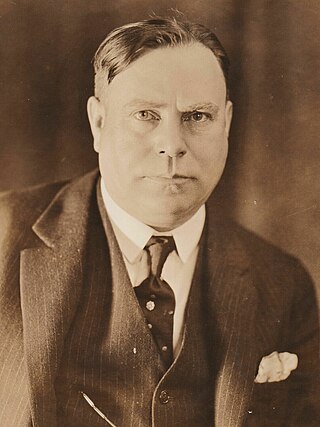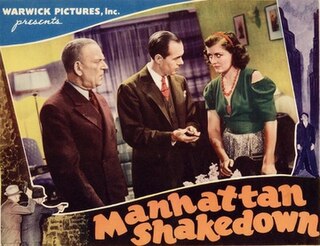| Part of a series on the |
| Cinema of Canada |
|---|
 |
| List of Canadian films |
| Pre-1970 |
| Pre-1920 1920s 1930s 1940s 1950s 1960s |
| 1970s |
| 1970 1971 1972 1973 1974 1975 1976 1977 1978 1979 |
| 1980s |
| 1980 1981 1982 1983 1984 1985 1986 1987 1988 1989 |
| 1990s |
| 1990 1991 1992 1993 1994 1995 1996 1997 1998 1999 |
| 2000s |
| 2000 2001 2002 2003 2004 2005 2006 2007 2008 2009 |
| 2010s |
| 2010 2011 2012 2013 2014 2015 2016 2017 2018 2019 |
| 2020s |
| 2020 2021 2022 2023 2024 |
This is a list of Canadian films which were released in the 1930s.
| Title | Director | Cast | Genre | Notes | ||
|---|---|---|---|---|---|---|
| 1931 | ||||||
| Among the Igloo Dewellers | Richard Fennie | Documentary | [1] | |||
| The Viking | George Melford | Charles Starrett, Louise Huntington, Arthur Vinton, Arthur Vinton | Drama | Technically not a Canadian film, The Viking is a forgotten Hollywood potboiler that nevertheless contains remarkable early footage of the life and hardships of Newfoundland seal hunters. | ||
| 1933 | ||||||
| The Crimson Paradise (US title Fighting Playboy) | Robert F. Hill | Nick Stuart, Lucile Browne | Drama shot in Vancouver | The first Canadian sound feature film; made with U.S. financing. [2] | ||
| Damaged Lives | Edgar G. Ulmer | Diane Sinclair, Lyman Williams | Drama | Made with U.S. financing | ||
| 1935 | ||||||
| Lest We Forget | Frank Badgley, W.W. Murray | Short | Made by the Canadian Government Motion Picture Bureau, the precursor to the National Film Board of Canada. [3] | |||
| Rhapsody in Two Languages | Gordon Sparling | Short | [4] | |||
| Secrets of Chinatown | Fred C. Newmeyer | Nick Stuart, Lucile Brown | Drama | Made with U.S. financing | ||
| 1936 | ||||||
| From Nine to Nine | Edgar G. Ulmer | Ruth Roland, Roland Drew | Drama | Made with U.S. financing [3] | ||
| House in Order | Gordon Sparling | John Pratt, Mildred Mitchell | Short drama | The film was sponsored by Shell Oil to promote its product. [3] | ||
| The King's Plate (released in the US as Thoroughbred) | Sam Newfield | Toby Wing, Kenne Duncan | Drama | Made with U.S. financing [3] | ||
| Lucky Corrigan (a/k/a Fury and the Woman) | Lewis D. Collins | William Gargan | Melodrama | Made with U.S. financing [5] | ||
| Lucky Fugitives | Nick Grinde | David Manners | Drama | Made with U.S. financing [3] | ||
| Secret Patrol | David Selman | Charles Starrett | Drama | Made with U.S. financing [5] | ||
| Tugboat Princess | David Selman | Walter C. Kelly, Valerie Hobson | Drama | Made with U.S. financing [5] | ||
| Undercover | Sam Newfield | Charles Starrett, Adrienne Doré, Kenneth Duncan, Wheeler Oakman | Drama | Made with U.S. financing [6] | ||
| 1937 | ||||||
| En pays neuf | Maurice Proulx | Documentary | [7] | |||
| The Kinsmen | Gordon Sparling | Short | From the Canadian Cameo series produced by Associated Screen News of Canada from Montreal. [8] | |||
| Murder Is News | Leon Barsha | John Gallaude. Iris Meredith | Drama | Made with U.S. financing | ||
| Patrol to the Northwest Passage | Richard Fennie | Documentary | [9] | |||
| Stampede | Ford Beebe | Charles Starrett | Western | Made with U.S. financing [5] | ||
| What Price Vengeance | Del Lord | Lyle Talbot, Wendy Barrie. Wally Albright | Drama | Made with U.S. financing | ||
| Woman against the World | David Selman | Alice Moore, Ralph Forbes | Melodrama | Made with U.S. financing [10] | ||
| 1938 | ||||||
| Convicted | Leon Barsha | Charles Quigley, Rita Hayworth | Drama | Made with U.S. financing | ||
| Death Goes North | Frank McDonald | Edgar Edwards, Sheila Bromley | Drama | Made with U.S. financing [11] | ||
| Across the Border (also known as Special Inspector ) | Leon Barsha | Charles Quigley, Rita Hayworth | Drama | Made with U.S. financing | ||
| 1939 | ||||||
| The Case of Charlie Gordon | Stuart Legg | Short | [12] | |||






